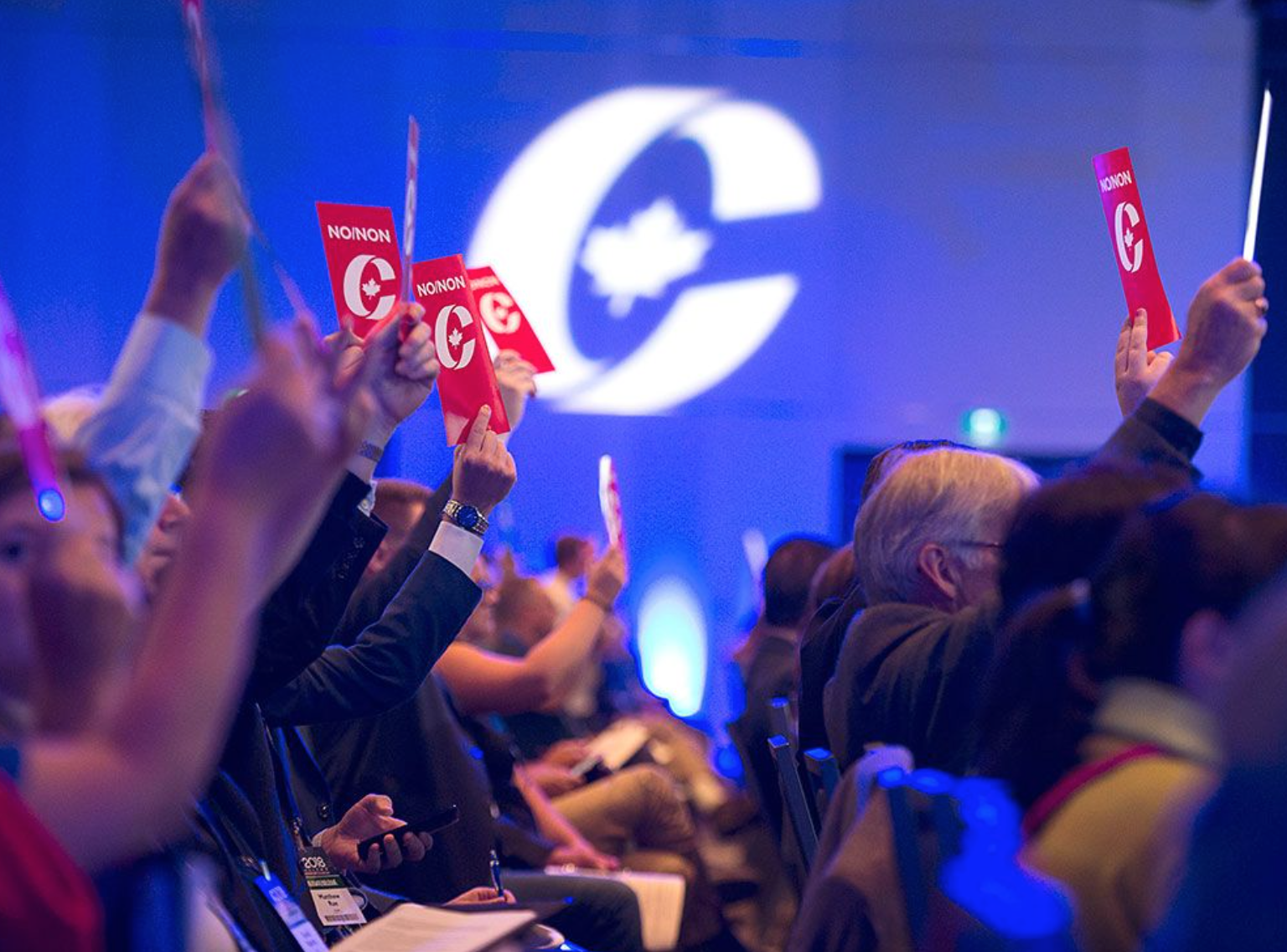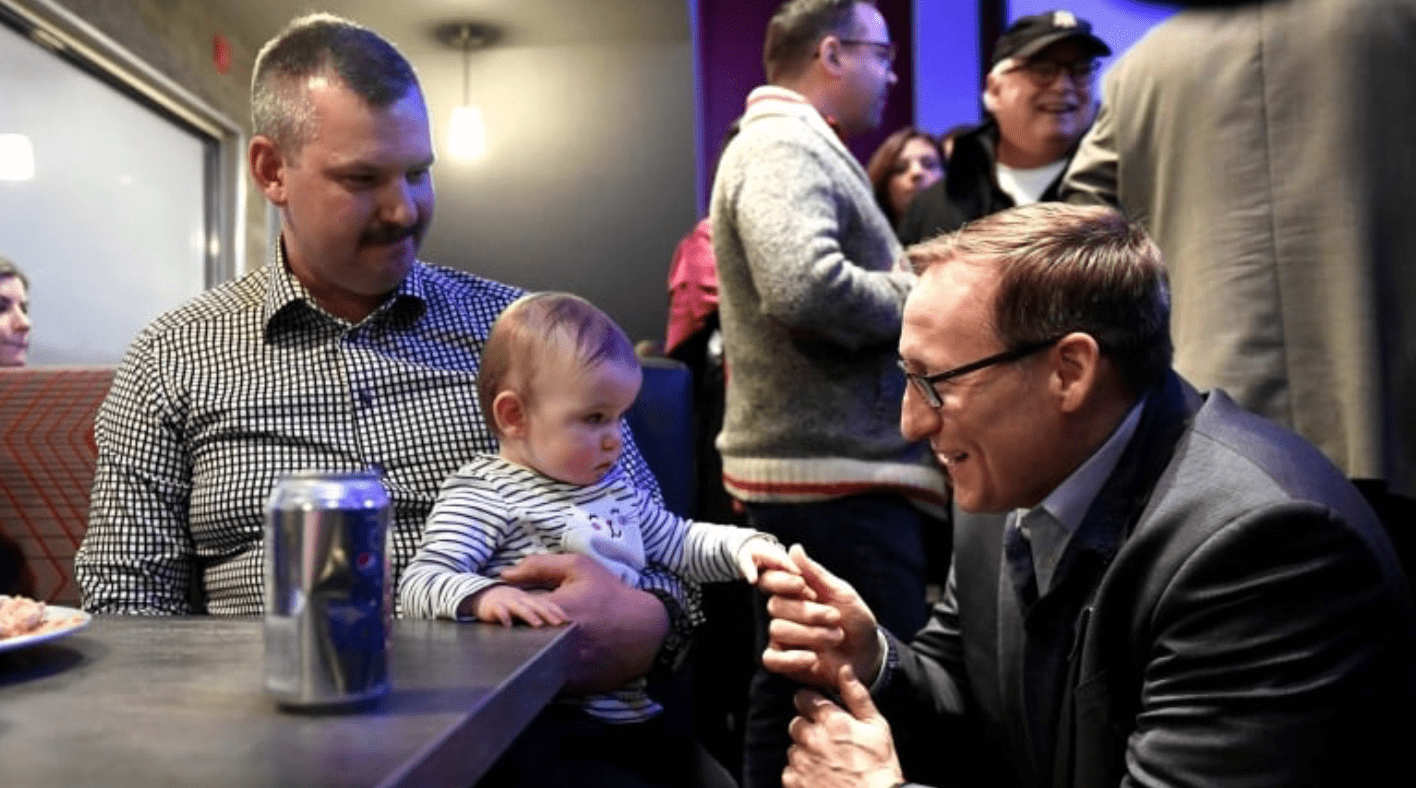The Conservative Party is currently debating how they will deal with protecting the nominations of their incumbent MPs in advance of the next election, which could in theory come at any point. The thinking behind protected nominations is that MPs are needed in Ottawa, and they don't have the time or capacity to be fending off an organized challenger in their own riding particularly when there's a hung parliament. The problem with this notion is that it flies in the face of one of the most basic aspects of how our electoral system works in this country, and it undercuts one of the most fundamental accountability mechanisms that voters have when it comes to their local representatives.
The party has thus far stated that if the election is held before June 2021, then all current MPs will automatically have their nominations protected automatically, which is a Very Bad Thing. There is ongoing debate as to what would happen if the election is later than that June 2021 date, and it sounds like the party's national council is debating adopting a position similar to what the Liberals did in the previous parliament, which was protecting the nomination so long as those MPs had fundraised a certain amount in their riding association, had a certain number of members signed up, as well as met targets for door-knocking all things which are good to have on an ongoing basis for anyone to ensure that they are not taking their position for granted, but these should never guarantee a protected nomination.
If things in our democracy were operating in an optimal way, there would be an open nomination in advance of any election, whether it's a government majority in the House of Commons or a hung parliament. Why this is important is because grassroots members who join a riding association are supposed to all have a say in who their candidate is going to be, and when there is an incumbent, it offers them an opportunity to hold that member to account at a party level. This is especially important in "safe" ridings where a party is likely to win the seat regardless, and if there is discontent at the riding level that said incumbent has been doing nothing of substance and is coasting to another victory, it can offer a way of ensuring that they don't have an easy ride especially if members of the riding association start organizing to find someone else to represent them.
This happened on a couple of occasions with former MP Rob Anders, who faced nomination challenges on a couple of different occasions after members of his riding association were tired of his remarks (such as when he referred to Nelson Mandela as a "terrorist."). The first couple of attempts to oust Anders were unsuccessful (one of those attempts was by Alison Redford, who went on to become Alberta premier), until he was ousted by Ron Liepert. We also saw nomination challenges to both Brad Trost and Kellie Leitch following their embarrassing leadership runs in the last parliament (Trost losing his race, Leitch deciding to stand down and not run again when it became clear that her challenger was organised), which proved that the party was trying to be self-correcting. In fact, Conservatives have a strong tradition of having very competitive nomination races in places like Alberta, where many of those seats are considered safe, and there have been nomination elections where several thousand people have signed up to take part. This is a good thing. It's how the system should work.
We've also seen an attempt to weaponize nominations in the current Conservative leadership race, where would-be candidate Aron Seal (who never did end up filing his papers) started saying that he would protect the nomination of any MPs who supported his candidacy something that he was called out on by Scott Reid (who didn't name him at the time), but was denounced by several other candidates. We also saw nomination threats in the UK prior to their general election, particularly among the Labour Party with those MPs who were not among Jeremy Corbyn's loyalists, as well as Conservatives who broke ranks on several of the Brexit votes (many of them choosing to not run again in the face of those threats). This is all bad for our system of democracy, and we should be alive to the dangers.
And those dangers are very real. The Samara Centre for Democracy's report on how nominations are being run in this country was nothing short of alarming. Parties have been monkeying with nominations in a variety of ways to ensure that leaders' preferred candidates can win or avoid a challenge (this was also a problem with some of the attempts to oust Rob Anders), and offering protected nominations is just one more example of how parties can squelch the basic democratic rights of their own membership if they think it suits their purposes. This is something that all Canadians need to be paying more attention to, because it's so fundamental to our system and how we wind up choosing the people who wind up on our ballots.
As of yet, the Liberals have not come to a decision on protected nominations, but given that they put such rules into place during a majority parliament (and still managed to make a complete farce of their own process), I have no faith that they will ensure a proper open nomination process before the next election. The NDP make a point of insisting that they always have open nominations, even though that too winds up being more in theory than in practice (especially as they will acclaim a straight, white male if they think it will win them the riding in the face of rules that say they need to let an "equity-seeking" candidate challenge any nomination). No party should protect their nominations if we want to be serious about our democracy, hung parliament or not.
Photo Credit: CBC News








